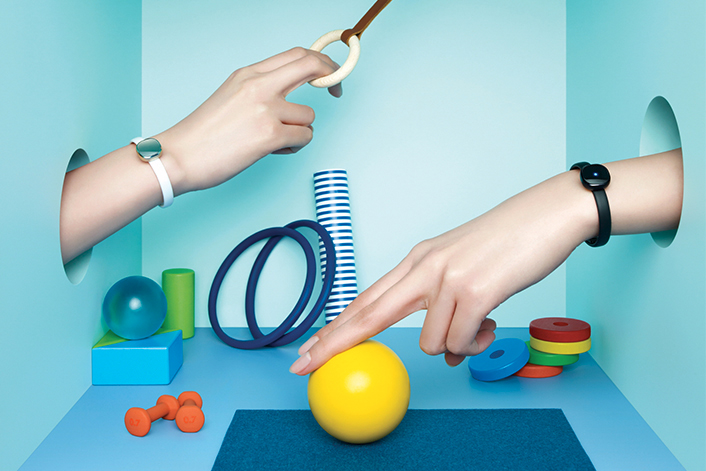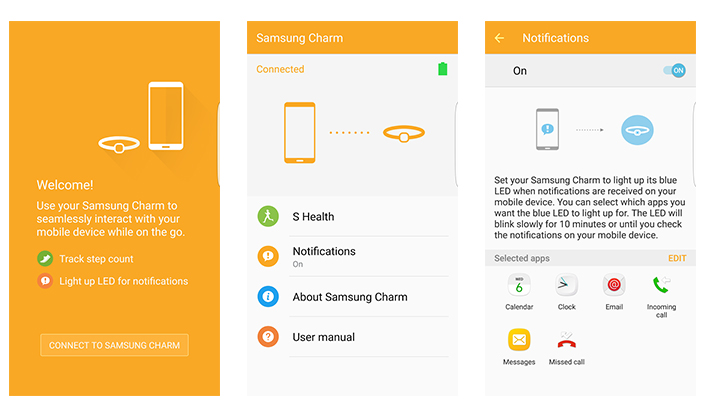
Samsung claims that the Charm, which was first unveiled at the Consumer Electronics Show in January, is “no ordinary fitness band” and “more like a piece of jewelry than an electronic device,” but you’ll be hard-pressed to find anything that makes the Charm any more “sophisticated” than the competition. It’s thin and lightweight and comes in gold, black, and rose quartz, sure, but otherwise looks like pretty much every midrange fitness band you’ve seen: a bulbous plastic body adhered to a silicon wrist strap.

That’s not a knock against the Charm, necessarily. It’s aesthetics may be conventional, but it checks plenty of other desirable boxes for a fitness tracker in its price range: It keeps track of the number of steps you’ve taken and notifies you of incoming texts, social media updates, and calls via a multi-color LED and vibration motor. It also pairs with Samsung’s S Health app via Bluetooth to estimate the number of calories you’ve burned and distance you’ve covered. Plus, the Charm lasts a while on a charge: Samsung says its 17mAh battery should get most people through up to 14 days.
It’s a bit pricey for what you get, though. The Charm costs $45 — $5 cheaper than the monochrome, screen-packing Fitbit Zip. But it’s comparable to other offerings like the Misfit Shine and Jawbone Up Move, for example, both of which start at $50. The choice, as always, comes down to personal preference.
The Charm hits retail in “the coming weeks,” Samsung says.
The Charm may not break new ground, but Samsung doesn’t really need it to — the company’s long since reached critical mass among smart band buyers. By the end of the fourth quarter of 2015, it commanded a 4.9 percent share of the market ahead of Garmin, Misfit, and others. And analysts think it’ll maintain that place in the months to come. According to IDC, shipments of smartwatches running Samsung’s proprietary Tizen operating system will reach 2.5 million units over the next three years.


